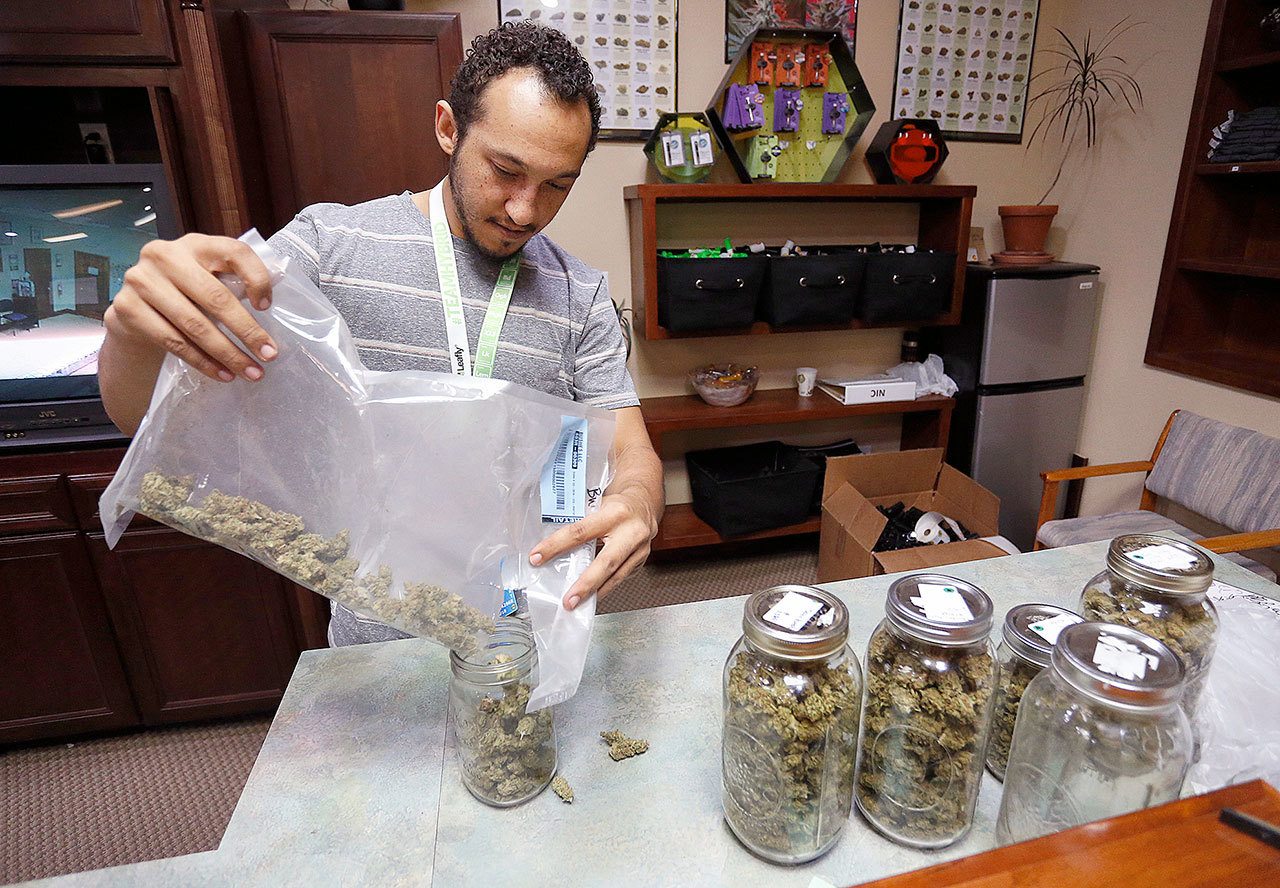Associated Press
WASHINGTON — The Obama administration has decided marijuana will remain on the list of most dangerous drugs, fully rebuffing growing support across the country for broad legalization, but said it will allow more research into its medical uses.
The decision to expand research into marijuana’s medical potential could pave the way for the drug to be moved to a lesser category. Heroin, peyote and marijuana, among others, are considered Schedule I drugs because they have no medical application; cocaine and opiates, for example, have medical uses and, while still illegal for recreational use, are designated Schedule II drugs.
The Drug Enforcement Administration said the agency’s decision came after a lengthy review and consultation with the Health and Human Services Department, which said marijuana “has a high potential for abuse” and “no accepted medical use.” The decision means that pot will remain illegal for any purpose under federal law, despite laws in 25 states and District of Columbia that have legalized pot for either medicinal or recreational use.
Advocates have long pushed for the federal government to follow suit.
“If the scientific understanding about marijuana changes — and it could change — then the decision could change,” DEA acting administrator Chuck Rosenberg wrote in a letter to the governors of Rhode Island and Washington, who sought the review of marijuana’s classification in 2011. “But we will remain tethered to science, as we must, and as the statute demands. It certainly would be odd to rely on science when it suits us and ignore it otherwise.”
Rosenberg said designating marijuana a Schedule I drug does not necessarily mean it is as dangerous as other drugs. “It is best not to think of drug scheduling as an escalating ‘danger’ scale — rather, specific statutory criteria (based on medical and scientific evidence) determine into which schedule a substance is placed,” Rosenberg wrote.
The Food and Drug Administration said agency officials reviewed more than 500 studies on the use of medical marijuana, identifying only 11 that met the agency standards for “legitimate testing.” For various reasons, none of the trials demonstrated “an accepted medical use,” the agency concluded.
The FDA last evaluated marijuana for medical use in 2006 and said in its latest review that the available research “has progressed,” but does not meet federal standards of safety or effectiveness.
While the DEA won’t reclassify marijuana, the agency did announce plans to make it easier for researchers to study pot’s possible medical benefits by expanding the number of entities that can legally grow marijuana for research purposes.
Currently only researchers at the University of Mississippi are allowed to grow marijuana, as part of a contract with the National Institute on Drug Abuse.
Washington Gov. Jay Inslee said he was disappointed with the DEA’s ruling but his state would continue “to maintain a well-regulated adult-use marijuana system and continue to allow patients to have access for necessary medicinal purposes.”
Sen. Ron Wyden, D-Ore., said the DEA’s decision “is keeping federal laws behind the times.”
“The DEA’s decision flies in the face of choices made freely by voters in Oregon and many other states about the legality of marijuana,” he said. Oregon legalized pot last year.
Jaclyn Stafford, an assistant manager at The Station dispensary in Boulder, Colorado, called the DEA’s decision “an inaccurate judgment of the plant.” She said rescheduling marijuana would allow for more regulation to an already growing market and allow more people to take advantage of what she described as the “holistic benefits” of pot.
The Obama administration’s position on marijuana started to ease in earnest in 2013 when the Justice Department notified Washington and Colorado, the first two states to legalize pot for recreational use and sales, that it would not interfere with state laws so long as the drug was kept out of the hands of children, off the black market and away from federal property.
Advocates saw that policy statement as the first step to an end of the federal prohibition of marijuana. But that hope was quickly diminished as administration officials, including the head of the White House-run Office of National Drug Control Policy, repeatedly said publicly that they still considered marijuana a dangerous drug that had no place in the legal market.
Thursday’s announcement was another blow to those hoping the federal government would change pot laws.
Talk to us
> Give us your news tips.
> Send us a letter to the editor.
> More Herald contact information.

























